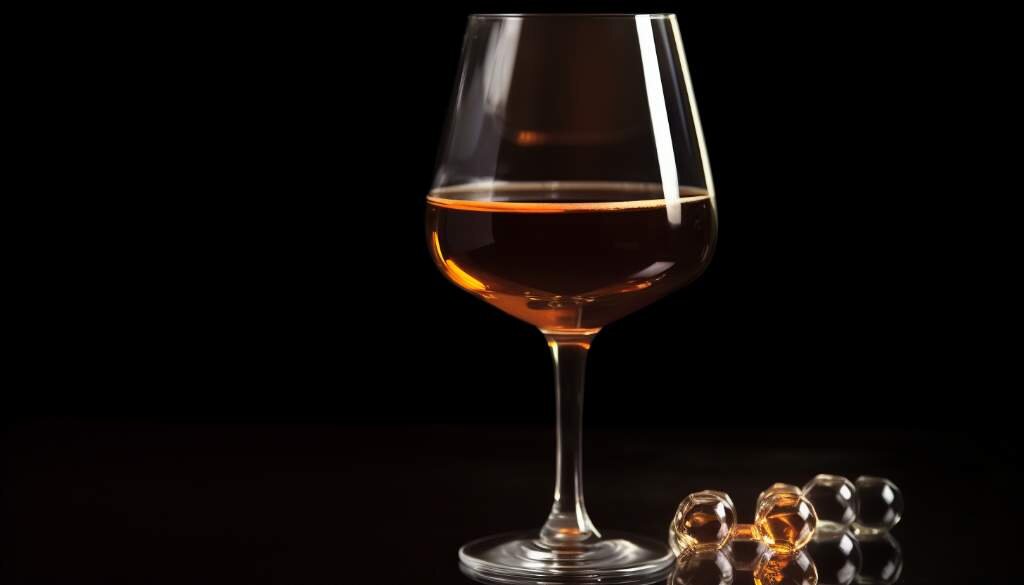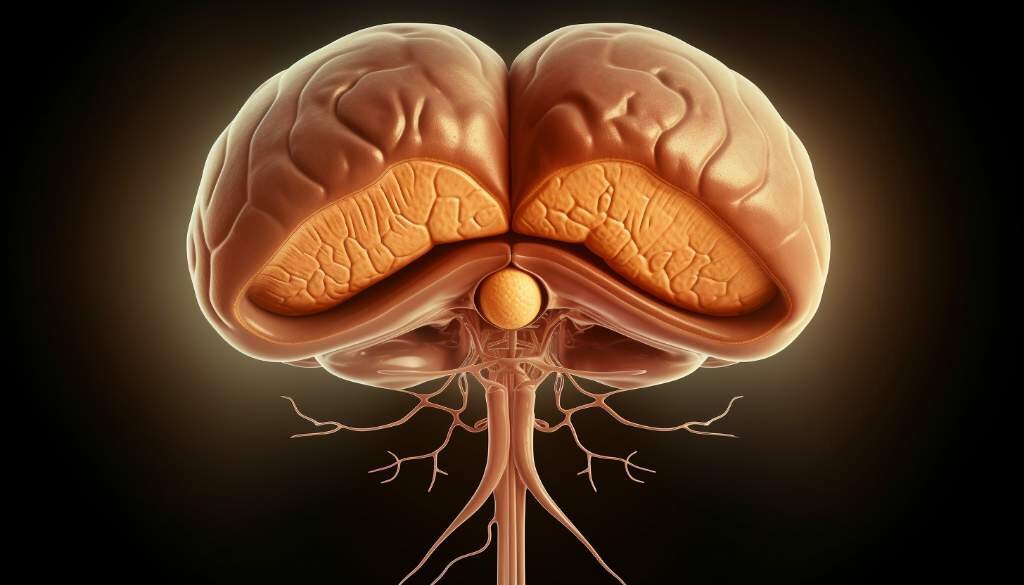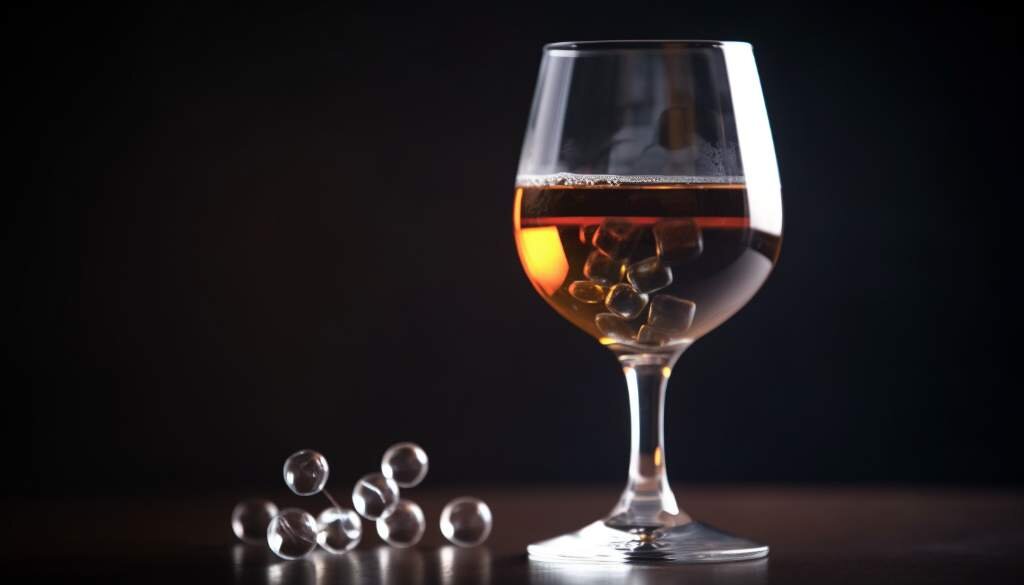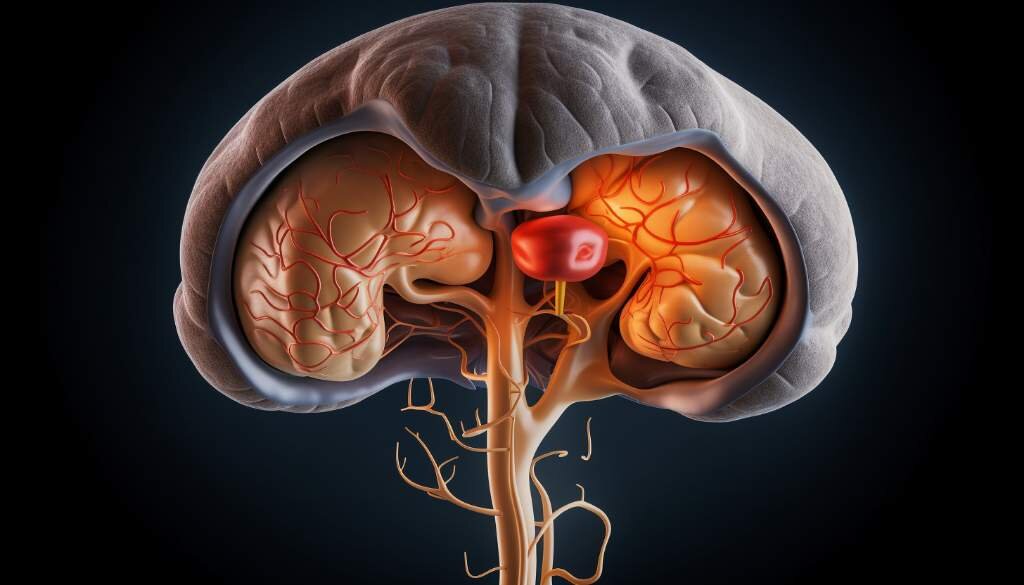
Introduction
Introduction: The male reproductive system is a complex network of organs and hormones that work together to maintain sexual health and fertility. It is essential for understanding the impact of alcohol on testosterone production and overall sexual health. In this section, we will explore the effects of alcohol on testosterone levels, the relationship between alcohol consumption and testosterone deficiency, as well as the impact of alcohol on men's sexual health.
Overview of the Male Reproductive System
The male reproductive system is a complex network of organs and glands that work together to produce and deliver sperm. Understanding the overall structure and function of this system is important when exploring the effects of alcohol on testosterone levels and sexual health in men.
At the core of the male reproductive system are the testes or testicles. These small oval-shaped organs, located in the scrotum, are responsible for producing testosterone, the primary male sex hormone. Testosterone plays a crucial role in the development of male reproductive organs, as well as in the regulation of sex drive, muscle mass, and bone density.
Connected to the testes are the epididymis and the vas deferens. The epididymis is a coiled tube where sperm cells mature and are stored. The vas deferens is responsible for transporting mature sperm from the epididymis to the ejaculatory ducts.
Additional glands contribute to the overall function of the male reproductive system. The seminal vesicles produce a fluid that mixes with sperm to form semen. The prostate gland also produces a portion of the fluid in semen, which helps nourish and protect sperm. Finally, the bulbourethral glands secrete a lubricating fluid to enhance sperm motility and provide additional protection.
Coordinated by the brain, the male reproductive system is influenced by the hypothalamus and the anterior pituitary gland. The hypothalamus releases gonadotropin-releasing hormone (GnRH), which triggers the anterior pituitary gland to release luteinizing hormone (LH) and follicle-stimulating hormone (FSH). These hormones stimulate the testes to produce testosterone and initiate sperm production.
Overall, a well-functioning male reproductive system is essential for fertility and sexual health. Alcohol can have a significant impact on the delicate balance of hormones and organs within this system, potentially leading to testosterone deficiency and sexual dysfunction.

Alcohol's Impact on Testosterone
Alcohol's Impact on Testosterone:
Alcohol can have a significant impact on testosterone levels in the male body. Testosterone is a hormone primarily produced in the testes and plays a crucial role in various bodily functions, including muscle development, bone density, mood regulation, and sexual health. While moderate alcohol consumption may not cause significant harm, excessive or chronic alcohol consumption can lead to a decline in testosterone levels.
In the subsequent sections, we will explore the effects of alcohol on the testes, anterior pituitary gland, and hypothalamus. We will also discuss the relationship between alcohol consumption and testosterone deficiency, the symptoms of low testosterone, and the potential for reversal of effects after stopping alcohol. Finally, we will delve into alcohol's impact on men's sexual health and the connection between alcohol and erectile dysfunction.
Effects of Alcohol on the Testes
Alcohol has various effects on the male reproductive system, including its impact on the testes. The testes are responsible for producing testosterone, the primary male sex hormone, which is crucial for male sexual development and function.
Excessive alcohol consumption can negatively affect the testes and testosterone production in several ways:
- Decreased Testosterone Production: Alcohol can inhibit the production of testosterone in the testes. Chronic alcohol consumption can lead to Leydig cell dysfunction, which are responsible for producing testosterone. This can result in decreased testosterone levels in the bloodstream.
- Testicular Atrophy: Heavy and prolonged alcohol use can cause testicular atrophy, a condition characterized by a reduction in testicular size. Testicular atrophy is often associated with decreased testosterone production, fertility issues, and sexual dysfunction.
- Sperm Abnormalities: Alcohol has been shown to have detrimental effects on sperm quality and function. It can lead to abnormal sperm morphology (size and shape) and reduced sperm count. These effects can impair male fertility and reduce the chances of successful reproduction.
Furthermore, the negative impact of alcohol on the testes is not limited to testosterone production and fertility. Alcohol abuse can also disrupt the hormonal balance in the body by affecting the anterior pituitary gland and the hypothalamus.
In summary, excessive alcohol consumption can have detrimental effects on the testes, leading to decreased testosterone production, testicular atrophy, and sperm abnormalities. These effects can have significant implications for male sexual health, fertility, and overall reproductive function.
Effects of Alcohol on the Anterior Pituitary Gland
The anterior pituitary gland plays a crucial role in the secretion of hormones that regulate various bodily functions, including testosterone production. However, excessive alcohol consumption can have adverse effects on the anterior pituitary gland, disrupting its normal functioning and leading to imbalances in hormone levels.
One of the main impacts of alcohol on the anterior pituitary gland is the inhibition of the production and release of luteinizing hormone (LH). LH is responsible for stimulating the production of testosterone in the testes. When alcohol inhibits LH secretion, it negatively affects the testes' ability to produce testosterone.
Furthermore, alcohol can also interfere with the secretion of follicle-stimulating hormone (FSH) by the anterior pituitary gland. FSH plays a role in sperm production, and its suppression can lead to reduced sperm count and fertility issues.
Alcohol-related damage to the anterior pituitary gland can also disrupt the overall hormone balance in the body. The pituitary gland controls the functioning of other endocrine glands, and an imbalance in its hormone production can affect the production of other hormones as well.
In addition to inhibiting hormone production, alcohol can also cause structural damage to the anterior pituitary gland. Chronic alcohol abuse can lead to inflammation, scarring, and cell death in the gland, which further impairs its ability to regulate hormone levels effectively.
It is important to note that the effects of alcohol on the anterior pituitary gland and testosterone production may be reversible to some extent. When individuals reduce or stop alcohol consumption, the gland's functionality may partially recover, leading to improvements in hormone levels. However, this recovery process can take time and may not fully restore hormone balance in all cases.
Effects of Alcohol on the Hypothalamus
The hypothalamus plays a crucial role in regulating various hormonal processes in the body, including the production and release of testosterone. Alcohol consumption can have detrimental effects on the hypothalamus, which can subsequently impact testosterone levels.
One of the ways alcohol affects the hypothalamus is by disrupting the balance of neurotransmitters in this region of the brain. Neurotransmitters are chemical messengers that facilitate communication between different parts of the brain, including the hypothalamus. Alcohol interferes with the normal functioning of neurotransmitters, leading to imbalances and disruptions in hormone regulation.
Additionally, chronic alcohol consumption can cause inflammation and oxidative stress in the hypothalamus. Alcohol-induced inflammation can damage hypothalamic cells and impair their ability to produce and release hormones effectively. Oxidative stress, which occurs when there is an imbalance between free radicals and the body's antioxidant defenses, can also contribute to hypothalamic dysfunction.
Furthermore, alcohol can interfere with the secretion of gonadotropin-releasing hormone (GnRH), a hormone produced by the hypothalamus. GnRH is responsible for stimulating the anterior pituitary gland to release luteinizing hormone (LH) and follicle-stimulating hormone (FSH), which are crucial for testosterone production. Alcohol consumption can disrupt the normal pulsatile release of GnRH, leading to decreased LH and FSH secretion and subsequently lower testosterone levels.
In summary, alcohol's impact on the hypothalamus can disrupt hormone regulation, including testosterone production. The disruption of neurotransmitter balance, inflammation, oxidative stress, and interference with GnRH secretion are all potential mechanisms through which alcohol affects the hypothalamus and contributes to testosterone deficiency.

Alcohol and Testosterone Deficiency
Alcohol and Testosterone Deficiency is a significant topic of concern when examining the effects of alcohol on the male reproductive system. Testosterone is a hormone that plays a crucial role in the development and maintenance of male reproductive tissues, as well as secondary sexual characteristics. It is responsible for regulating muscle mass, bone density, mood, libido, and sperm production. Testosterone deficiency, also known as hypogonadism, occurs when the body does not produce enough testosterone.
In the following sections, we will explore the relationship between alcohol consumption and testosterone deficiency, symptoms of low testosterone, and the potential for reversal of effects after stopping alcohol. These sub-sections will provide a deeper understanding of how alcohol can impact testosterone levels and overall male reproductive health.
Relationship between Alcohol Consumption and Testosterone Deficiency
Alcohol consumption has been found to have a significant impact on testosterone deficiency in men. Testosterone is a hormone that plays a crucial role in male reproductive health and overall well-being. When alcohol is consumed, it can disrupt the normal functioning of the endocrine system, leading to decreased testosterone production.
One of the primary ways that alcohol affects testosterone levels is by affecting the liver. The liver is responsible for metabolizing alcohol, and when it prioritizes processing alcohol, it can interfere with other important processes in the body, including the production of testosterone. Chronic alcohol consumption can lead to liver damage, which further exacerbates the reduction in testosterone levels.
Additionally, alcohol consumption can directly affect the testes, which are responsible for producing testosterone. Research has shown that heavy alcohol consumption can lead to testicular atrophy, or shrinkage of the testes. This shrinkage can result in decreased testosterone production and subsequently lead to testosterone deficiency.
Furthermore, alcohol can disrupt the functioning of the anterior pituitary gland, which controls the release of luteinizing hormone (LH). LH is essential for testosterone production as it stimulates the Leydig cells in the testes to produce testosterone. Excessive alcohol consumption can inhibit the release of LH, leading to decreased testosterone levels.
The hypothalamus is another crucial component of the endocrine system that is impacted by alcohol. The hypothalamus produces gonadotropin-releasing hormone (GnRH), which signals the anterior pituitary gland to release LH. Alcohol can disrupt this communication by affecting the hypothalamus, leading to decreased production of GnRH and subsequently lower levels of testosterone.
In summary, alcohol consumption can have a direct impact on testosterone deficiency. It can disrupt the normal functioning of the testes, anterior pituitary gland, and hypothalamus, leading to decreased testosterone production. It is important for individuals to be aware of the potential negative effects of alcohol on their reproductive health and consider moderating their alcohol consumption to maintain optimal testosterone levels.
Symptoms of Low Testosterone
Low testosterone levels can result in a variety of symptoms that can impact a man's overall well-being and quality of life. These symptoms can manifest physically, emotionally, and mentally. It is important to recognize these symptoms to address any potential testosterone deficiency caused by alcohol consumption.
One common symptom of low testosterone is fatigue and decreased energy levels. Men with low testosterone often experience a lack of motivation and find it difficult to engage in physical activities or exercise. This can lead to a sedentary lifestyle and weight gain.
Another symptom is a decrease in muscle mass and strength. Testosterone plays a crucial role in building and maintaining muscle mass. When testosterone levels are low, men may notice a decrease in muscle size and strength, making it difficult to perform certain tasks or engage in physical activities.
Low testosterone can also affect a man's sexual health. One of the symptoms is a decrease in libido or sex drive. Men with low testosterone may experience a reduced interest in sex and may find it difficult to achieve or maintain an erection.
Mood changes and irritability are also common symptoms of low testosterone. Testosterone influences mood, and low levels can lead to feelings of depression, irritability, and overall mood swings. Men with low testosterone may experience increased feelings of sadness or lack of motivation.
Cognitive changes may also occur with low testosterone levels. Men may experience difficulty focusing, memory problems, and a decrease in overall cognitive function. This can impact job performance, relationships, and overall quality of life.
It is important to note that these symptoms can be indicative of other health conditions as well, so it is essential to consult with a healthcare professional for a proper diagnosis. Conducting a blood test to measure testosterone levels can help determine if alcohol consumption has resulted in testosterone deficiency.
Adopting a healthy lifestyle, such as reducing or eliminating alcohol consumption, can lead to the reversal of these symptoms and promote healthy testosterone levels.
Reversal of Effects After Stopping Alcohol
When it comes to the relationship between alcohol consumption and testosterone deficiency, there is good news. Studies have shown that the effects of alcohol on testosterone levels can be reversed after stopping alcohol consumption.
Alcohol has been found to suppress testosterone production in the body by affecting the testes, anterior pituitary gland, and hypothalamus. However, once alcohol consumption is discontinued, the body has the ability to recover and restore normal testosterone levels.
Research has shown that testosterone levels can start to increase within a few weeks of stopping alcohol. However, the time it takes for testosterone levels to fully recover may vary depending on several factors, including the individual's overall health, the duration and intensity of alcohol consumption, and other lifestyle factors.
During the recovery process, it is important to adopt a healthy lifestyle that promotes hormonal balance. This includes eating a nutritious diet, engaging in regular exercise, getting enough sleep, and managing stress levels.
It's worth noting that in some cases, long-term alcohol abuse can lead to irreversible damage to the testes and other organs involved in testosterone production. In such cases, the recovery of testosterone levels may be limited.
If you suspect you have low testosterone levels, it is recommended to consult with a healthcare professional who can assess your hormone levels and provide appropriate guidance and treatment options.

Alcohol and Sexual Health
Alcohol and Sexual Health:
When it comes to sexual health, alcohol can have both short-term and long-term effects on men. Alcohol and sexual health refer to the relationship between alcohol consumption and various aspects of male sexual functions and well-being. While moderate alcohol consumption may not have significant negative effects, excessive and chronic alcohol intake can lead to a range of issues related to sexual health.
In the following sub-sections, we will explore the impact of alcohol on men's sexual health and its connection to specific conditions such as erectile dysfunction. These sub-sections will provide a deeper understanding of the relationship between alcohol and sexual health, shedding light on the mechanisms through which alcohol affects male sexual function.
Please continue reading to discover more about the effects of alcohol on men's sexual health.
Alcohol's Impact on Men's Sexual Health
Alcohol consumption can have a significant impact on men's sexual health. Excessive and prolonged alcohol intake can lead to various sexual problems and dysfunctions. Some of the key ways alcohol affects men's sexual health include:
- 1. Erectile Dysfunction (ED): Alcohol can interfere with the process of achieving and maintaining an erection. It acts as a depressant, which can dampen the central nervous system, impairing the signals necessary for an erection. Alcohol also affects the vascular system, leading to reduced blood flow to the penis, making it difficult to achieve or sustain an erection.
- 2. Delayed Ejaculation: Alcohol can also delay or inhibit ejaculation. The central nervous system suppression caused by alcohol can interfere with the coordination and timing necessary for the orgasmic response, resulting in delayed ejaculation or anorgasmia.
- 3. Reduced Libido: Excessive alcohol consumption can lower sexual desire or libido. Alcohol affects the balance of hormones in the body, including testosterone, which plays a vital role in maintaining a healthy sex drive. A decrease in testosterone levels can lead to a diminished libido and reduced sexual interest.
- 4. Impaired Fertility: Alcohol can have a negative impact on male fertility. It can disrupt the production of sperm in the testes and affect their quality, motility, and overall count. This can lead to fertility issues and difficulty in conceiving.
It is important to note that occasional and moderate alcohol consumption may not have a significant detrimental effect on sexual health. However, excessive and prolonged alcohol intake can lead to persistent sexual problems. If you are experiencing any of these issues, it is advisable to seek medical advice and consider reducing or eliminating alcohol consumption to improve your sexual health.
Connection Between Alcohol and Erectile Dysfunction
Alcohol consumption can have a significant impact on men's sexual health, and one of the areas that it can affect is erectile dysfunction. Erectile dysfunction, also known as impotence, refers to the inability to achieve or maintain an erection that is firm enough for sexual intercourse. It is a common condition that can have various causes, including psychological factors, underlying health conditions, and lifestyle choices.
Several studies have shown a clear link between alcohol consumption and an increased risk of erectile dysfunction. Alcohol is a depressant that affects the central nervous system, and it can interfere with the normal functioning of the body, including the mechanisms that are involved in achieving and maintaining an erection.
One of the ways alcohol can contribute to erectile dysfunction is by affecting the proper functioning of the blood vessels. When a man is sexually aroused, the blood vessels in the penis relax and widen, allowing for increased blood flow and the engorgement of the erectile tissues. This process is essential for achieving an erection. However, excessive alcohol consumption can impair the ability of the blood vessels to relax, leading to reduced blood flow to the penis and difficulties in achieving an erection.
Another way alcohol can contribute to erectile dysfunction is by altering the levels of certain hormones in the body. Alcohol can suppress the production of testosterone, which is the primary male sex hormone responsible for regulating sexual function and libido. Testosterone plays a crucial role in maintaining erectile function, and low levels of this hormone can contribute to difficulties in achieving and maintaining an erection.
Furthermore, alcohol can also have a negative impact on the central nervous system, which is involved in the transmission of signals between the brain and the penis that are necessary for initiating and maintaining an erection. Alcohol can disrupt this communication, leading to difficulties in achieving and maintaining an erection.
It is important to note that the effects of alcohol on erectile dysfunction can vary depending on the individual and the amount of alcohol consumed. Some men may experience temporary difficulties in achieving an erection after consuming alcohol, while others may develop chronic erectile dysfunction as a result of long-term excessive drinking.
If you are experiencing erectile dysfunction, it is advisable to consult with a healthcare professional who can help determine the underlying cause and provide appropriate treatment options. In some cases, making lifestyle changes such as reducing alcohol consumption may be recommended to improve sexual health.

Conclusion
Conclusion: After examining the effects of alcohol on the male reproductive system, it is evident that alcohol consumption can significantly impact testosterone levels and overall sexual health. This section will provide a summary of the findings discussed in the previous sections and their implications.
Summary of Findings
In this section, we explored the impact of alcohol consumption on testosterone levels and sexual health in men.
Through our research, we discovered that alcohol has a negative impact on testosterone production in the male reproductive system. It affects various components of the reproductive system, including the testes, anterior pituitary gland, and hypothalamus.
Alcohol consumption can directly damage the testes, leading to decreased testosterone synthesis. The toxic effects of alcohol on testicular tissue can impair Leydig cell function, which is responsible for testosterone production.
Additionally, alcohol affects the anterior pituitary gland, which plays a crucial role in regulating testosterone production. Alcohol consumption can disrupt the release of luteinizing hormone (LH) from the pituitary gland, which in turn affects testosterone production.
Furthermore, alcohol affects the hypothalamus, the part of the brain that controls the release of hormones. Chronic alcohol consumption can disrupt the hypothalamic-pituitary-gonadal axis, leading to decreased testosterone levels.
In terms of testosterone deficiency, our research indicates a clear relationship between alcohol consumption and low testosterone levels. Heavy alcohol consumption can result in hypogonadism, a condition characterized by low testosterone levels.
Some common symptoms of low testosterone include decreased libido, erectile dysfunction, fatigue, depression, and decreased muscle mass. Alcohol-induced testosterone deficiency can exacerbate these symptoms and negatively impact men's overall health and well-being.
The good news is that the effects of alcohol on testosterone levels and sexual health are reversible. By abstaining from alcohol, individuals can support the recovery of their testosterone levels and alleviate the symptoms of low testosterone.
In conclusion, alcohol consumption has a detrimental impact on testosterone levels and sexual health in men. By understanding the relationship between alcohol and testosterone deficiency, individuals can make informed decisions about their alcohol consumption and take steps to improve their overall well-being.








